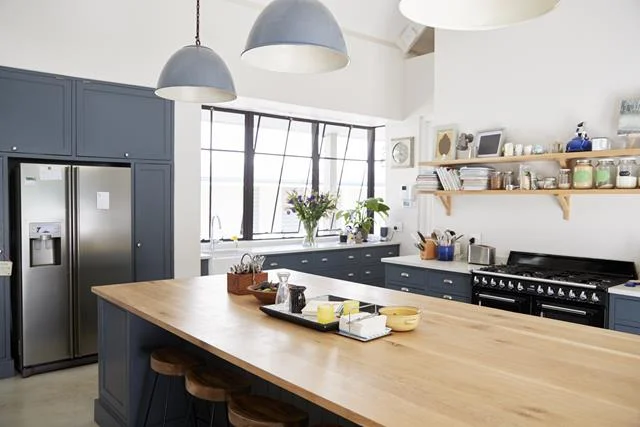Are you passionate about interior design and creating beautiful spaces? Do you have a knack for selecting the perfect furniture, accents, and textiles to transform houses into homes? If so, starting a home decor business might be the perfect venture for you. In this article, we will guide you through the process of launching your own home decor business and share valuable insights and tips every step of the way.
The demand for home decor products is on the rise, as more and more people prioritize creating stylish and comfortable living spaces. Whether it’s furnishing a new home or redesigning an existing one, homeowners are constantly seeking unique and inspiring pieces to personalize their spaces. This growing demand presents a lucrative opportunity for aspiring entrepreneurs to tap into the home decor market.
One of the appealing aspects of starting a home decor business is its potential for profitability and flexibility. With creativity as your foundation and an understanding of market trends, you can carve out a niche within this industry that aligns with your passions and expertise.
This allows you to have control over your product offerings, pricing strategies, and target market. Whether you dream of running an online store showcasing handcrafted furniture or curating vintage accents for interior designers, the possibilities are endless.
Understanding the Home Decor Market
The home decor market is a vast and diverse industry that encompasses various segments, including furniture, accents, textiles, and more. To start a successful home decor business, it is crucial to have a deep understanding of the market landscape and trends. This section will explore different aspects of the home decor market and provide insights on how to navigate this ever-evolving industry.
Exploring Different Segments
When entering the home decor business, it is important to familiarize yourself with the different segments within the market. Furniture, for example, includes categories such as sofas, beds, tables, and chairs. Accents encompass decorative items like vases, sculptures, and candles. Textiles include rugs, curtains, bedding, and pillows. By understanding these various segments, you can identify where your interests lie and determine which areas you want to focus on in your business.
Analyze Current Trends and Styles
A key aspect of understanding the home decor market is staying up-to-date with current trends and popular styles. Home decor trends are constantly evolving based on consumer preferences and interior design movements. Researching what customers are currently gravitating towards can help you curate a product lineup that appeals to their tastes. Keep an eye on interior design blogs, magazines, social media platforms, and trade shows to get a pulse on what is in demand.
Importance of Market Research
Conducting thorough market research is essential in identifying your target customers and competition within the home decor industry. Start by defining your target audience based on demographics (age group, income level) or psychographics (lifestyle choices). Understanding their preferences will enable you to tailor your products to their specific needs.
Additionally, analyzing competitors in the market will provide valuable insights into pricing strategies, unique selling points (USPs), marketing techniques they employ etc Identifying gaps or opportunities in the market can help you differentiate your business from competitors.
By understanding different segments of the home decor market, staying abreast of trends and styles, and conducting thorough market research, you can position your home decor business for success in a competitive industry.
Defining Your Home Decor Niche
When starting a home decor business, it is crucial to define your niche within the industry. Finding your unique style and areas of expertise will not only help you stand out from the competition but also attract the right target customers. Here are some tips to help you define your home decor niche:
- Identify Your Style: Take some time to explore different styles and determine which ones resonate with you the most. Whether it’s vintage, modern, bohemian, or something else entirely, finding a style that speaks to you will make it easier to curate products that align with your vision.
- Consider Your Expertise: Think about what skills or knowledge you possess that can set you apart in the market. Are you particularly skilled in sourcing rare vintage pieces? Do you have a deep understanding of sustainable materials? Identifying your areas of expertise can help establish your authority and attract a specific customer base.
- Research Market Demand: While it’s essential to follow your passion, it’s also crucial to ensure there is demand for the niche you choose. Conduct market research to identify trends and popular styles in home decor. Look for gaps in the market or underserved customer segments that you can cater to with your unique niche.
Once you have defined your home decor niche, it’s important to stay focused and consistent with your brand message and product offerings. By specializing in a specific area of home decor, you can better target your marketing efforts and differentiate yourself from more general competitors.
| Home Decor Style | Percentage of Consumers |
|---|---|
| Vintage | 32% |
| Modern | 25% |
| Bohemian | 18% |
| Rustic | 15% |
Based on this data, it is evident that vintage styles are highly preferred by consumers, followed closely by modern and bohemian styles. This information can guide you in narrowing down your niche and focusing your efforts on sourcing and curating products that align with these popular consumer preferences.
By defining your home decor niche, you position yourself as a specialist in a specific area of the market. This allows you to attract customers who are specifically looking for the style and expertise you offer, creating a loyal customer base and setting yourself up for success in the home decor industry.
Developing a Business Plan
Elements of a Comprehensive Business Plan
A comprehensive business plan for a home decor business should include several key elements. First, clearly define your mission statement and core values. This will guide your decision-making process and help you stay focused on what sets your business apart from others in the industry.
Secondly, establish measurable goals and objectives that you aim to achieve within specific timeframes. These goals can include financial targets, such as revenue or profit margins, as well as other metrics like customer acquisition or brand awareness.
In addition to goals and objectives, it is essential to create a detailed budget for your home decor business. This involves identifying your startup costs (such as sourcing products and materials, setting up an online presence), operating expenses (such as rent/utilities), and projected revenues. Having a clear understanding of your financials will enable you to make informed decisions and track the progress of your business.
Conducting SWOT Analysis and Creating Competitive Advantage
A SWOT analysis is an effective tool for evaluating the strengths, weaknesses, opportunities, and threats that exist within your chosen niche of the home decor market. Conducting this analysis allows you to identify areas where you excel and areas that may need improvement.
Once you have identified your strengths, leverage them to create a competitive advantage in the marketplace. For example, if you offer unique handmade products or specialize in eco-friendly materials, highlight these aspects of your business to differentiate yourself from competitors.
Furthermore, consider any potential weaknesses or threats in order to mitigate risks. For instance, if you recognize a lack of experience in a particular area, such as online marketing, you may need to invest in training or seek expert help to ensure your business thrives.
By conducting a thorough SWOT analysis and leveraging your competitive advantage, you will be better positioned to succeed in the home decor industry.
Sourcing Products and Materials
Once you have identified your home decor niche, it’s time to find the products and materials that will make your business unique. Sourcing high-quality and stylish items is crucial for attracting customers and establishing a strong brand presence. In this section, we will explore different sourcing options and provide tips on building relationships with suppliers.
One option for sourcing products is to work with local artisans. This allows you to support small businesses while offering customers one-of-a-kind pieces. Attend local craft fairs, visit artisan markets, and network within your community to connect with talented individuals who create home decor items in line with your niche. Building relationships with these artisans can lead to long-term partnerships and exclusive product offerings.
Wholesalers are another potential source for home decor products. They offer a wide range of items at competitive prices, making bulk purchases more cost-effective for your business. Research wholesalers online or attend trade shows in order to discover new suppliers and stay up-to-date with industry trends. It’s important to thoroughly vet any potential partners to ensure the quality of their products meet your standards.
Online platforms such as Etsy, Alibaba, or Amazon can also be valuable resources when sourcing home decor products. These platforms allow you to connect with suppliers around the world, providing access to an extensive range of items suitable for various tastes and preferences. Read reviews from other buyers before making a purchase in order to verify the credibility and reliability of the supplier.
Regardless of which sourcing option you choose, communication is key when building relationships with suppliers. Be clear about your expectations regarding product quality, delivery times, and pricing. Regularly communicate with them, addressing any concerns or questions promptly. By fostering positive relationships with suppliers, you can ensure consistency in product quality and establish a reliable supply chain for your business.
By sourcing products from a variety of these options – local artisans, wholesalers, and online platforms – you can curate a unique collection that sets your home decor business apart from competitors. Remember to always prioritize quality and select items that align with your brand’s aesthetic and target customer preferences. In the next section, we will explore how to effectively set up an online presence for your business to reach a wider audience.
Setting Up an Online Presence
In today’s digital age, having a strong online presence is crucial for the success of any business, including home decor ventures. Setting up an online presence not only allows you to reach a wider audience but also provides a platform to showcase your products and engage with potential customers.
In this section, we will discuss the importance of having a professional website and social media presence, provide step-by-step instructions on creating a visually appealing and user-friendly website, and explore the benefits of utilizing social media platforms to showcase products and connect with customers.
1. Having a Professional Website:
Having a professional website is essential for establishing credibility and trust with potential customers. When designing your website, focus on creating an aesthetically pleasing layout that aligns with your home decor brand and showcases your unique style. Additionally, ensure that your website is user-friendly and easy to navigate so that visitors can find the information they are looking for seamlessly.
Include high-quality images of your products, detailed descriptions, pricing information, and clear contact details. Don’t forget to optimize your website for search engines by incorporating relevant keywords throughout your content.
2. Utilizing Social Media Platforms:
Social media platforms such as Instagram, Pinterest, and Facebook are powerful tools for promoting your home decor business. Create accounts on these platforms and regularly post compelling content related to home decor trends, design tips, product features, and behind-the-scenes glimpses into your business. Engage with your followers by responding to comments and messages promptly. Collaborating with influencers in the home decor niche can also help increase brand visibility and attract a larger audience.
3. Building an Email List:
Another effective way to establish an online presence is by building an email list of interested subscribers who have given you permission to send them updates about your products or promotions. Offer something of value in exchange for their email address, such as an exclusive discount or free resources related to home decor. Use email marketing platforms to send regular newsletters or product updates to your subscribers, keeping them informed about new arrivals, sales, and other relevant news.
Setting up an online presence is a critical step in starting a home decor business. It allows you to showcase your products, engage with potential customers, and build brand awareness. By creating a professional website, utilizing social media platforms effectively, and building an email list, you can establish a strong online presence that will help your business thrive in the competitive home decor market.
Relevant Data
*Source: Retailing Today
**Source: DMA – Data & Marketing Association
| Aspect | Data |
|---|---|
| Websites | 82% of consumers conduct online research before making a purchase* |
| Social Media | 71% of consumers are more likely to make a purchase based on a social media referral* |
| Email Marketing | Email campaigns have an average ROI of $38 for every $1 spent** |
Marketing and Promoting Your Home Decor Business
Once you have established your home decor business and developed a strong brand identity, it is essential to focus on marketing and promoting your products to attract potential customers. Effective marketing strategies will help increase awareness about your business and drive sales. Here are some tips for marketing and promoting your home decor business:
- Content Marketing: Create engaging and valuable content related to home decor that can be shared through various channels such as your website, blog, or social media platforms. This could include informative articles or blog posts, videos showcasing decorating tips, or DIY project tutorials. By providing useful content, you can establish yourself as an expert in the field while attracting interested customers.
- Influencer Partnerships: Collaborate with influencers in the home decor industry who have a large following on social media platforms. This can help expose your products to their audience and gain credibility through recommendations from trusted sources. Consider offering free samples of your products to influencers in exchange for them sharing their experience with their followers.
- Email Marketing: Build an email list by offering exclusive discounts or free resources to visitors who subscribe to your newsletter. Utilize email marketing platforms to send regular newsletters or promotional emails highlighting new product arrivals, special offers, or seasonal sales. Personalize the emails based on customer preferences and purchase history to increase engagement.
- Captivating Product Descriptions and Imagery: Invest time in creating compelling product descriptions that evoke emotions and emphasize the unique features of each item. Use high-quality images that showcase the aesthetics of your products from different angles or in styled settings. Visual appeal is crucial in attracting potential customers online.
- Brand Awareness: Consistently utilize your social media platforms to showcase your products, share behind-the-scenes content, participate in industry conversations, and engage with followers through comments and direct messages. Collaborate with other businesses or influencers for cross-promotion opportunities that can expand brand reach.
- Online and Offline Advertising Channels: Consider utilizing online advertising platforms like Google Ads or Facebook Ads to target specific audiences based on their interests, demographics, or browsing behavior. Additionally, explore offline advertising channels such as local events, home decor exhibitions, or partnering with complementary businesses for joint marketing campaigns.
By implementing these marketing strategies, you can effectively promote your home decor business and attract customers who resonate with your brand. Stay consistent in your marketing efforts and regularly evaluate the success of each strategy to adapt and refine your approach over time.
Managing Operations and Growth
Inventory Management and Order Fulfillment
Once your home decor business is up and running, it’s important to focus on managing your operations efficiently. Effective inventory management is essential to ensure you have the right products available for your customers while minimizing costs associated with excess inventory. Utilizing an inventory management system can help you track stock levels, monitor sales trends, and streamline ordering processes.
Maintaining accurate inventory records will allow you to identify which products are the most popular and which ones may need adjustment. It’s crucial to stay organized and regularly update your inventory system to avoid stockouts or overstocking. Consider implementing a just-in-time (JIT) inventory strategy, where you order products as needed to reduce storage costs.
Additionally, efficient order fulfillment is key to providing excellent customer service. Develop streamlined processes to quickly process orders and ship them out in a timely manner. Consider outsourcing fulfillment to a third-party logistics (3PL) provider if necessary.
Streamlining Operations with Technology
In today’s digital age, technology plays a vital role in managing and growing a home decor business. Invest in tools and software that can help optimize various aspects of your operations.
Customer relationship management (CRM) systems can help track customer interactions, manage leads, and improve overall customer satisfaction. By centralizing customer data, CRM software enables personalized communication and targeted marketing campaigns.
Implementing project management software can also aid in organizing tasks, deadlines, and collaboration with team members or contractors involved in different aspects of your business.
Furthermore, consider utilizing accounting software or hiring an accountant to handle financial matters such as invoicing, bookkeeping, and tax preparation. This will ensure accurate recording of income and expenses as well as compliance with relevant regulations.
Strategies for Scaling Your Business
As your home decor business grows, explore opportunities for expansion to further solidify your success. One strategy is to expand your product offerings. Based on customer feedback and market trends, consider introducing complementary products to your existing line or exploring new categories that align with your brand.
Another way to grow is through collaborations with other businesses. Partnering with like-minded businesses, such as interior designers or home renovation companies, can lead to cross-promotional opportunities and access to a wider customer base.
For those who have predominantly operated online, opening a physical store may also be an option to enhance the customer experience and build additional brand recognition. Carefully consider locations and create an inviting atmosphere that reflects your unique style and brand identity.
Conclusion
In conclusion, starting a home decor business can be a rewarding and profitable venture for those with a passion for interior design. The growing demand for home decor products presents a unique opportunity to enter the market and carve out a niche. By understanding the different segments of the home decor market and identifying your own style and areas of expertise, you can differentiate yourself from the competition and attract your target customers.
Developing a comprehensive business plan is crucial for success in the home decor industry. Setting clear goals, establishing a budget, and creating an effective marketing strategy are all vital steps in achieving your business objectives. Additionally, conducting market research, analyzing trends, and identifying your competitive advantage through a SWOT analysis will help guide your decision-making process.
Creating an online presence is essential in today’s digital age. A visually appealing and user-friendly website coupled with active social media engagement will allow you to showcase your products and connect with potential customers. Employing various marketing strategies such as content marketing, influencer partnerships, and email marketing will help increase brand awareness and drive sales.
Managing operations efficiently is key to maintaining customer satisfaction. Effective inventory management systems, streamline order fulfillment processes, and utilizing tools like customer relationship management software will enable you to meet demand promptly while prioritizing quality control.
Finally, turning your passion for home decor into a successful business requires dedication, creativity, and perseverance. Remember that starting any venture comes with challenges but staying focused on your goals can lead to great rewards. Seek guidance from industry resources, network with fellow entrepreneurs, and continue to educate yourself about new trends within the market.
Take action today; turn your love for home decor into an exciting entrepreneurial journey. With careful planning, strategic execution, and ongoing commitment to growth, you have the potential to create not only a successful business but also make homes more beautiful one décor at a time.
Frequently Asked Questions
How do I start my home decor business?
To start your home decor business, it is important to begin by conducting thorough market research to understand the competition and target audience. This will help you identify potential gaps or opportunities in the market. Next, create a detailed business plan outlining your objectives, target market, pricing strategy, and marketing approach. Consider sourcing unique and high-quality home decor items either through wholesalers or directly from manufacturers.
Build a strong online presence by creating a professional website, engaging with customers on social media platforms, and utilizing e-commerce platforms to showcase and sell your products. Networking within the industry can also help you establish valuable partnerships and collaborations. Finally, make sure to focus on customer satisfaction by providing excellent service and maintaining good relationships with your buyers.
Is home decor a good business to start?
Home decor can be a profitable business to start due to its consistent demand and potential for growth. As people become more conscious of their living spaces and aim to create comfortable yet stylish homes, the demand for aesthetically pleasing decor items continues to rise. Additionally, the increasing popularity of interior design trends on social media platforms has further fueled the interest in home decor products.
With proper research and effective marketing strategies, there is ample opportunity for success in this industry. However, like any business venture, it is essential to carefully analyze the market conditions, target audience preferences, and establish a unique selling proposition that sets your business apart from competitors.
How to start selling home decor items?
Starting selling home decor items can be done through various channels depending on your resources and target market. One popular method is establishing an online presence through e-commerce platforms such as Amazon or Etsy where you can list your products for sale easily and showcase them to a wide audience.
Creating an independent website provides flexibility in terms of branding and customization options while enabling direct sales transactions. Utilizing social media platforms like Instagram or Facebook can also be effective tools for showcasing your inventory creatively and engaging with potential customers directly through comments or direct messages.

Hello, lovely readers! I’m Sheila Collins, and I’m delighted to be your trusted guide on this exciting journey of home improvement, design, and lifestyle. As the founder and editor-in-chief of Home Guide Blog, I’m passionate about all things related to homes, and I’m here to share my knowledge, experiences, and insights with you.





